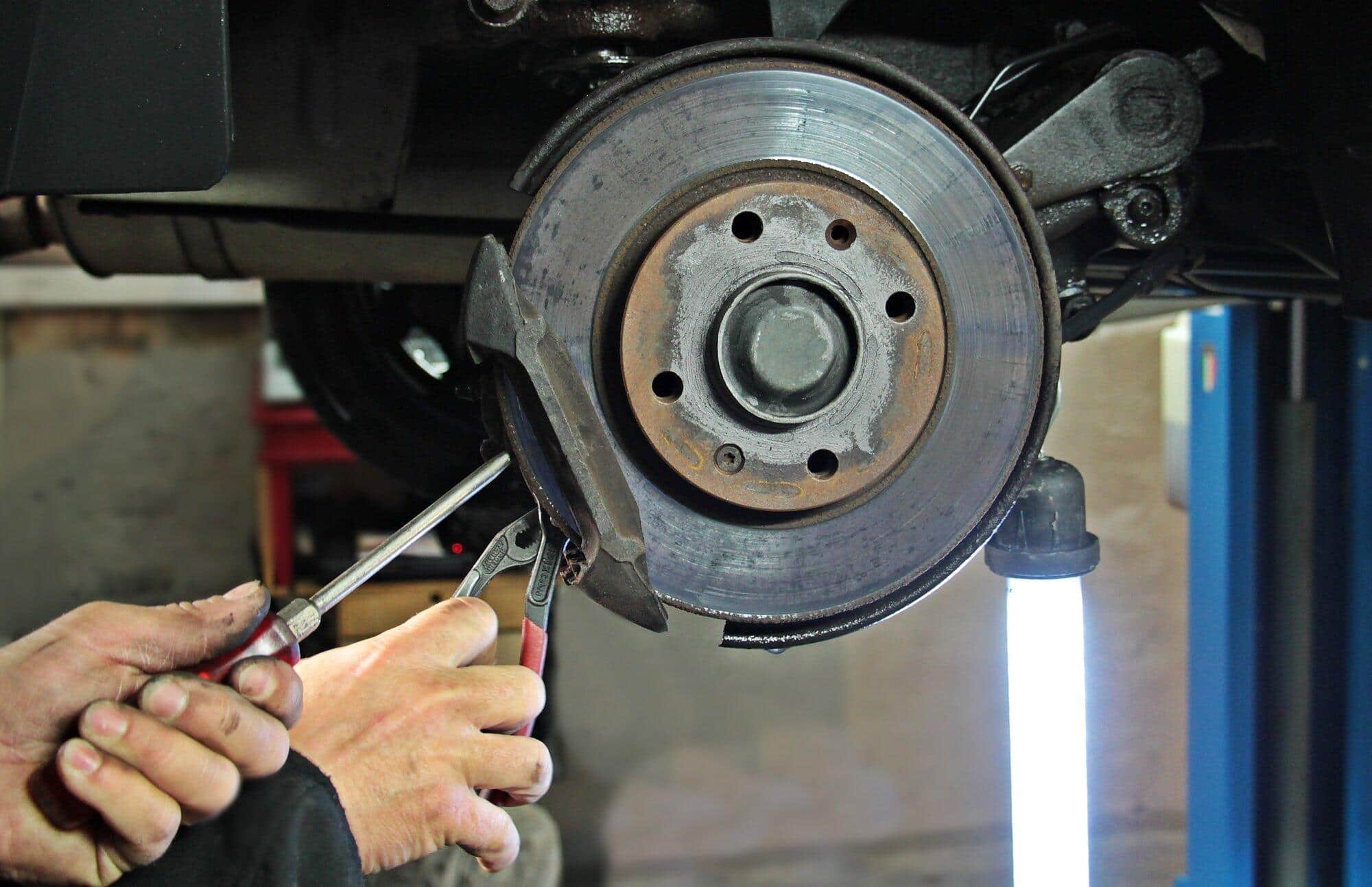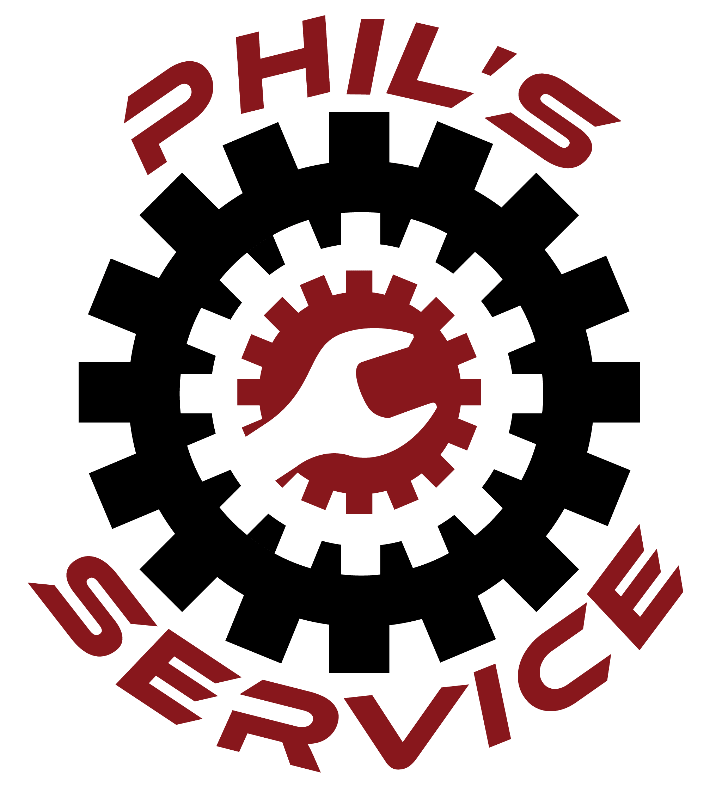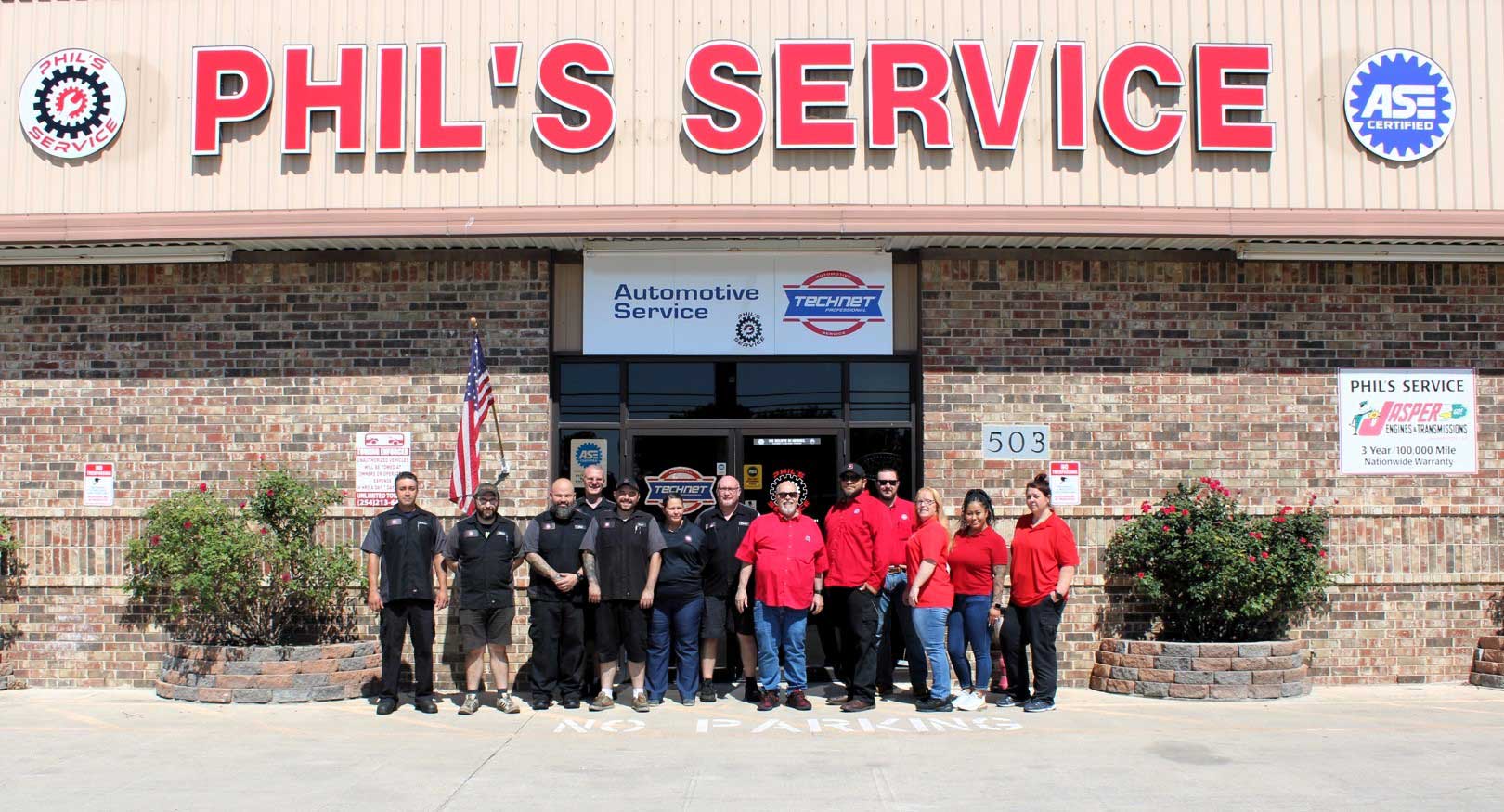Service Brake Systems: What You Need to Know
Maintaining a safe and reliable vehicle hinges on one crucial component: your service brake.
Imagine driving through the busy streets of Killeen or navigating the curvy roads near Fort Cavazos. Suddenly, you realize that your brakes aren't working as expected. It's a frightening thought, isn't it?
Your brakes are the unsung heroes of your car, keeping you safe from harm's way. In this guide, we'll dive into why service brakes are so vital, how they work, and essential brake maintenance tips to ensure your safety.
The Function of a Service Brake
First, let's get a clear understanding of what a service brake does. The service brake function refers to your vehicle's primary braking system, which is responsible for slowing down or stopping your car when you press the brake pedal. Unlike the parking or emergency brake, which only secures your vehicle when stationary, the service brake is in constant use every time you drive.
Components of a service brake system include:
- Brake pedal: Initiates the braking process
- Master cylinder: Translates the pedal's force into hydraulic pressure
- Brake pads and rotors: Convert hydraulic energy into mechanical force, stopping the wheels
- Brake lines: Transfer the hydraulic pressure throughout the system
Understanding how these components work together is crucial for grasping the importance of service brakes.
Why Service Brake Systems Are Crucial for Safety?
Your safety - and that of everyone on the road - depends on a fully functional service brake system. Without it, your vehicle could easily become a hazard. Here's why service brakes are so vital:
- Emergency stops: Quick, precise braking can prevent accidents in high-pressure situations
- Controlled driving: A reliable brake system helps maintain control when navigating slippery roads or steep inclines
- Pedestrian safety: Being able to stop quickly keeps pedestrians out of harm's way
In short, your service brakes are a lifesaver. Neglecting their maintenance can lead to dangerous outcomes, a risk no one should take.
Understanding Different Types of Service Brake Systems
Not all service brake systems are created equal. Depending on the make and model of your vehicle, your brakes may function differently. Knowing the types of brakes your car uses helps you understand their maintenance needs and how they contribute to your safety on the road.
Disc Brakes
These are the most used and are found in newer vehicles. They operate with brake pads that press against a rotor (disc), creating friction to slow down or stop your car. Disc brakes are known for their efficiency, especially in wet conditions.
Drum Brakes
Though they are less used today, drum brakes are still used on the rear wheels of some vehicles. Instead of a rotor, drum brakes use brake shoes to press against a drum, creating the necessary friction to stop. They're generally more affordable but may require more frequent maintenance.
Anti-Lock Braking System (ABS)
This advanced system prevents your wheels from locking up during hard braking, ensuring better control and reducing the risk of skidding. ABS is especially beneficial on slippery or uneven surfaces, making it an essential safety feature in most vehicles today.
Regenerative Brakes in Electric and Hybrid Vehicles
Unlike traditional brakes, regenerative braking systems convert the vehicle's kinetic energy back into stored energy in the battery. This type of braking not only helps slow the car but also improves fuel efficiency and extends the life of the brake system.
Common Service Brake Issues
Despite their durability, service brakes are prone to wear and tear. Regular use and environmental factors can lead to several problems. Here are some common issues that require immediate attention:
- Squeaky or grinding brakes: This could indicate worn brake pads or damaged rotors
- Vibrating brake pedal: Often caused by warped rotors or uneven brake pad wear
- Spongy brake pedal: This symptom may suggest air in the brake lines or a failing master cylinder
- Dashboard brake warning light: An unmistakable sign that your service brake needs professional evaluation
Ignoring these warning signs can lead to brake failure. If you experience any of these issues, schedule an inspection at Phil's Service for car repair in Killeen, Texas, as soon as possible.
Essential Brake Maintenance Tips
Taking care of your service brakes prolongs their lifespan and keeps you safe. Here are some vital brake maintenance tips:
- Regular inspections: Have your brakes checked every six months or during each oil change
- Brake pad replacement: Change your brake pads when they're worn to prevent damage to the rotors
- Flush the brake fluid: Brake fluid absorbs moisture over time, which can corrode the system, so flush the fluid every 2-3 years
- Monitor brake performance: Keep an ear out for strange noises or changes in braking behavior
Troubleshooting Your Service Brake System
Have you been experiencing braking issues? Here are some service brake troubleshooting steps you can take:
- Check brake fluid levels
- Inspect brake pads
- Test for leaks
- Listen for noises
When basic troubleshooting doesn't solve the problem, leave it to the professionals. Phil's Service automotive repair in Killeen, TX, has certified mechanics who are ready to diagnose and repair your brake issues.
When to Consider a Service Brake Replacement?
Brakes don't last forever. Even with regular maintenance, you'll eventually need a service brake replacement. Here are some indicators that it's time:
- Brake pads are less than 1/4 inch thick
- Braking distance increases
- Corroded or warped rotors
- Persistent brake warning light
Why Choose Phil's Service for Brake Repairs in Killeen, Texas?
Phil's Service isn't just any auto repair shop in Killeen. We take pride in offering top-notch brake repair in Killeen, Texas. Our ASE-certified mechanics use the latest diagnostic tools to deliver efficient, reliable brake repairs.
We understand how crucial your vehicle's safety is, which is why we offer personalized auto repair in Killeen and transparent pricing.
But we don't stop at brake services. Our team is also equipped to handle:
- Oil change in Killeen Texas
- Preventative vehicle maintenance in Killeen Texas
- Tire sales in Killeen Texas
- Battery replacement in Killeen Texas.
Service Brake Systems: Request Your Appointment Today
Maintaining your service brake system isn't only about keeping your car in good condition. It's about ensuring your safety and the safety of those around you. Phil's Service is here to help with expert brake services you can trust.
Ready to secure your peace of mind? Contact Phil's Service today and request an appointment for a comprehensive brake inspection or repair.
Wondering what you need to know about brake service systems? Contact the auto specialists at Phil's Service to schedule an brake systems.
Maintaining a safe and reliable vehicle hinges on one crucial component: your service brake.
Imagine driving through the busy streets of Killeen or navigating the curvy roads near Fort Cavazos. Suddenly, you realize that your brakes aren't working as expected. It's a frightening thought, isn't it?
Your brakes are the unsung heroes of your car, keeping you safe from harm's way. In this guide, we'll dive into why service brakes are so vital, how they work, and essential brake maintenance tips to ensure your safety.
The Function of a Service Brake
First, let's get a clear understanding of what a service brake does. The service brake function refers to your vehicle's primary braking system, which is responsible for slowing down or stopping your car when you press the brake pedal. Unlike the parking or emergency brake, which only secures your vehicle when stationary, the service brake is in constant use every time you drive.
Components of a service brake system include:
- Brake pedal: Initiates the braking process
- Master cylinder: Translates the pedal's force into hydraulic pressure
- Brake pads and rotors: Convert hydraulic energy into mechanical force, stopping the wheels
- Brake lines: Transfer the hydraulic pressure throughout the system
Understanding how these components work together is crucial for grasping the importance of service brakes.
Why Service Brake Systems Are Crucial for Safety?
Your safety - and that of everyone on the road - depends on a fully functional service brake system. Without it, your vehicle could easily become a hazard. Here's why service brakes are so vital:
- Emergency stops: Quick, precise braking can prevent accidents in high-pressure situations
- Controlled driving: A reliable brake system helps maintain control when navigating slippery roads or steep inclines
- Pedestrian safety: Being able to stop quickly keeps pedestrians out of harm's way
In short, your service brakes are a lifesaver. Neglecting their maintenance can lead to dangerous outcomes, a risk no one should take.
Understanding Different Types of Service Brake Systems
Not all service brake systems are created equal. Depending on the make and model of your vehicle, your brakes may function differently. Knowing the types of brakes your car uses helps you understand their maintenance needs and how they contribute to your safety on the road.
Disc Brakes
These are the most used and are found in newer vehicles. They operate with brake pads that press against a rotor (disc), creating friction to slow down or stop your car. Disc brakes are known for their efficiency, especially in wet conditions.
Drum Brakes
Though they are less used today, drum brakes are still used on the rear wheels of some vehicles. Instead of a rotor, drum brakes use brake shoes to press against a drum, creating the necessary friction to stop. They're generally more affordable but may require more frequent maintenance.
Anti-Lock Braking System (ABS)
This advanced system prevents your wheels from locking up during hard braking, ensuring better control and reducing the risk of skidding. ABS is especially beneficial on slippery or uneven surfaces, making it an essential safety feature in most vehicles today.
Regenerative Brakes in Electric and Hybrid Vehicles
Unlike traditional brakes, regenerative braking systems convert the vehicle's kinetic energy back into stored energy in the battery. This type of braking not only helps slow the car but also improves fuel efficiency and extends the life of the brake system.
Common Service Brake Issues
Despite their durability, service brakes are prone to wear and tear. Regular use and environmental factors can lead to several problems. Here are some common issues that require immediate attention:
- Squeaky or grinding brakes: This could indicate worn brake pads or damaged rotors
- Vibrating brake pedal: Often caused by warped rotors or uneven brake pad wear
- Spongy brake pedal: This symptom may suggest air in the brake lines or a failing master cylinder
- Dashboard brake warning light: An unmistakable sign that your service brake needs professional evaluation
Ignoring these warning signs can lead to brake failure. If you experience any of these issues, schedule an inspection at Phil's Service for car repair in Killeen, Texas, as soon as possible.
Essential Brake Maintenance Tips
Taking care of your service brakes prolongs their lifespan and keeps you safe. Here are some vital brake maintenance tips:
- Regular inspections: Have your brakes checked every six months or during each oil change
- Brake pad replacement: Change your brake pads when they're worn to prevent damage to the rotors
- Flush the brake fluid: Brake fluid absorbs moisture over time, which can corrode the system, so flush the fluid every 2-3 years
- Monitor brake performance: Keep an ear out for strange noises or changes in braking behavior
Troubleshooting Your Service Brake System
Have you been experiencing braking issues? Here are some service brake troubleshooting steps you can take:
- Check brake fluid levels
- Inspect brake pads
- Test for leaks
- Listen for noises
When basic troubleshooting doesn't solve the problem, leave it to the professionals. Phil's Service automotive repair in Killeen, TX, has certified mechanics who are ready to diagnose and repair your brake issues.
When to Consider a Service Brake Replacement?
Brakes don't last forever. Even with regular maintenance, you'll eventually need a service brake replacement. Here are some indicators that it's time:
- Brake pads are less than 1/4 inch thick
- Braking distance increases
- Corroded or warped rotors
- Persistent brake warning light
Why Choose Phil's Service for Brake Repairs in Killeen, Texas?
Phil's Service isn't just any auto repair shop in Killeen. We take pride in offering top-notch brake repair in Killeen, Texas. Our ASE-certified mechanics use the latest diagnostic tools to deliver efficient, reliable brake repairs.
We understand how crucial your vehicle's safety is, which is why we offer personalized auto repair in Killeen and transparent pricing.
But we don't stop at brake services. Our team is also equipped to handle:
- Oil change in Killeen Texas
- Preventative vehicle maintenance in Killeen Texas
- Tire sales in Killeen Texas
- Battery replacement in Killeen Texas.
Service Brake Systems: Request Your Appointment Today
Maintaining your service brake system isn't only about keeping your car in good condition. It's about ensuring your safety and the safety of those around you. Phil's Service is here to help with expert brake services you can trust.
Ready to secure your peace of mind? Contact Phil's Service today and request an appointment for a comprehensive brake inspection or repair.


